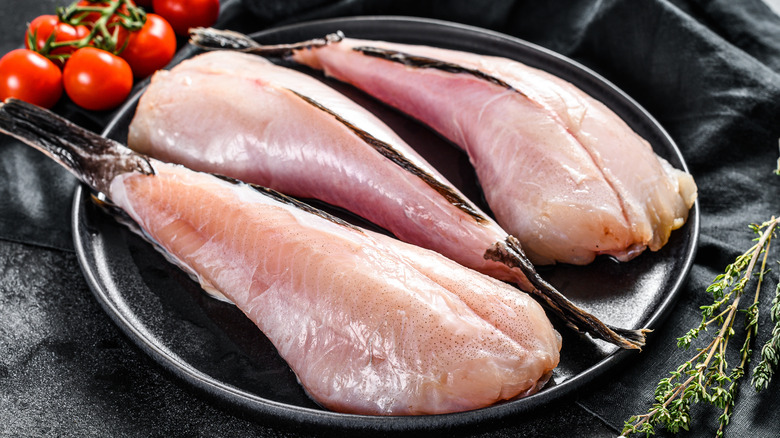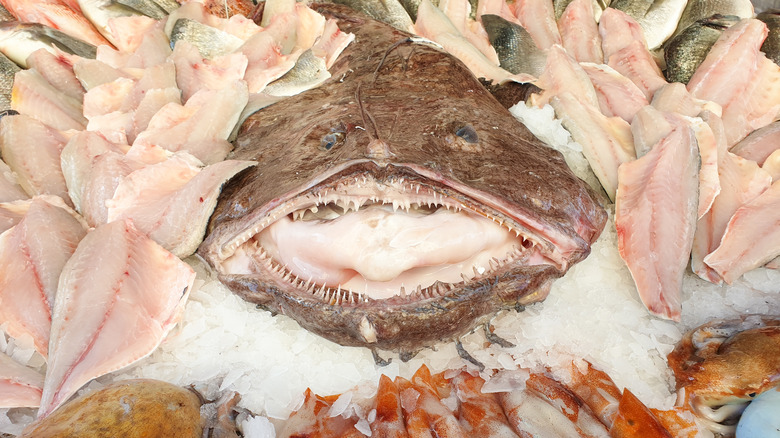You Should Think Twice Before Eating Monkfish. Here's Why
Health experts tell us to eat more seafood; but as with any rule, there are exceptions. Some fish can cause more problems than they cure. Bluefin tuna and orange roughy, for instance, often have high levels of mercury and PCBs. Additionally, farmed salmon often have parasites and diseases and are given antibiotics you probably don't want or need. Other seafood species, while not unhealthy, should be avoided because their consumption has negative repercussions that ripple throughout the environment.
According to Eating Well, mahi-mahi from Costa Rica, Guatemala, or Peru are an example of this. Sadly, methods for catching mahi-mahi in these countries also result in the bycatch of sea turtles, seabirds, and sharks. (Mahi-mahi caught in the U.S. and Ecuador are better regulated.) Other species, like halibut and Chilean sea bass are susceptible to overfishing. As noted by One Medical, monkfish is another species you should avoid for this reason.
Why it's responsible to avoid monkfish
Let's start by saying that monkfish are pretty tasty. Food & Wine once called it "the most delicious sea monster," in reference to its flat, sharp-fanged, large-headed features. As terrifying as it looks, however, this "poor man's lobster" has a firm texture and a light, sweet flavor.
Here's another reason you might be tempted by monkfish. According to Lancaster General Health, this fish is pretty good for you. The hospital points out that it is high in protein and the mineral phosphorus, which boosts metabolism and bone strength. It's also rich in vitamins B-6 and B-12 as well as selenium, which helps your body effectively use antioxidants.
Long a staple in parts of Europe (via Citizen Sustainable), monkfish has only recently gained a small measure of popularity in the United States. So why avoid it? While not currently endangered, according to One Medical, monkfish are recovering after a period of depletion. The method for catching these bottom-dwellers of the North Atlantic and Mediterranean, however, is trawling. Dragging the bottom of the seabed threatens the habitat where monkfish and other species breed. This type of net fishing leads not only to overfishing of the targeted species but can also negatively impact other animal species as well as vegetation in these habitats.
Going out for seafood? Although monkfish might sound appetizing, there are more sustainable choices of mild, white fish, such as cod, halibut, and flounder (via Environmental Defense Fund).

